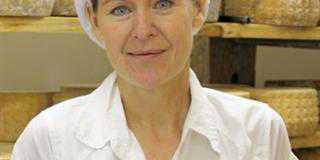
Photo: Nan Smith
A significant number of South African farmers – white and black – have been slogging away for the past decade and a half to put in place working plans that pave the way for land reform while still adhering to sound business principles.
This pioneering spirit, typical of many farming communities, is well illustrated in the Bosveld Group, a family-owned sub-tropical fruit agribusiness based in Limpopo and the 2014 winner of the Agricultural Writers South Africa’s National Farmer of the Year title.
Group chairperson, Milaan Thalwitzer, and his three sons-in-law Piet Smit (CEO), Marthinus Neethling (director) and Cornel van der Merwe (director), have put a number of transformation projects on the ground, creating businesses with the right ‘fit’ for conditions unique to each venture.
Thalwitzer, an unassuming person, provided the platform for the now well-known NDP 50:50 pilot project two years ago, receiving government’s stamp of approval for it. With the running of the business largely in the hands of his successors, he now puts most of his time and financial resources into transformation. The Bosveld Group operates mainly in the Mopanie Region of Limpopo.
“Land reform is on the go in our district; we’ve started the Mopanie audit and at a conservative guess I’d say there are 40 to 50 farms looking for owners,” says Thalwitzer. “The opportunities are right here – and it’s easier than starting a new project in another country.”
Principles
Richmond farm, near Hoedspruit, is in an area with a subtropical climate and receives about 600mm of rain a year.
The land lies in the shadow of the Drakensberg and farming within view of the spectacular sandstone cliffs is a privilege they do not take for granted, says Smit. Richmond formed part of a land restitution claim and is fully owned by the Moletele community, he says.
“It was bought in 2004 as a going concern from a willing seller. We started running this business in 2012 and have a good working relationship with the community from whom we rent the land.”
Although the so-called lease-back model is an old one, it has been successfully reworked on Richmond to the benefit of the commercial farming business and the community.
“Look at reworking old models before you throw them out indiscriminately,” says Thalwitzer.
Willem van Jaarsveld, Agri Limpopo’s CEO, says the lease-back model has been maligned because it was abused by farmers who rented back land at rates not aligned to market prices.
“In every instance, the principles of ethical business practice should be observed. Good governance systems will help facilitate this,” he stresses.
One of the principles of restitution is the transfer of skills, says Thalwitzer. “There’s no point in handing over land to people who don’t have the skills they need to farm it. But partnering beneficiaries with financially sound mentors can lead to success stories.”
A sound model
On Richmond, the commercial partner pays rent to the landowner, who provides certain inputs. The model is structured as follows:
The Bosveld Group owns 100% of Richmond Kapano Farming, which pays rent to the property owners, the Moletele Community (the land claimants), through a separate holding company (Richmond 605).
There is a long-term lease in place and the lease agreement, signed by the holding company, provides for the protection of hard assets and biological assets. As part of the lease agreement, permanent and seasonal labour is drawn from the community.

Labour training programmes and upskilling are at the core of the successful relationship between partners. Report-back sessions are regarded as highly relevant as they keep communication channels open and current.
The landowner’s (community) income is based on a fair rent and a percentage of turnover. The community must be organised and have reasonable expectations as far as rent and profit share is concerned and these parameters must be clear from the outset.
The landowner may buy up to 50% of the holding company at any stage and the commercial partner never becomes the landowner. “This is a lease arrangement that allows black people who are landowners and have a passion or even an interest in agriculture to become part of the business process,” says Van Jaarsveld.
Land, water, production
The farm covers an area of 2 400ha, with 1 000ha scheduled for irrigation. “Water comes from the Blyde River, which fits into our overarching plan to source water from diverse catchments; this is vital in a water-limited part of the country,” says Van Jaarsveld. A complex network of irrigation lines feeds orchards with water taken from the river and from a pipeline scheme.
Most of the system is drip irrigation, and technology ensures that water is used as efficiently as possible with improvements and savings constantly monitored. Variable-speed pumps are used to drive efficient use of power.
The Richmond orchards are planted to grapefruit (233ha), Valencia oranges (232ha) and pomangoes, a grapefruit/naartjie hybrid (8ha). High quality fruit is primarily destined for the export market. “The local market is relatively small,” Smit explains.
Orchard age varies across the farm, as ageing trees are removed and replaced regularly. Before planting a new orchard the land is ripped, disced and ridged, says Hannes Booyens, general manager of Richmond. “It’s a very windy area so we plant Casuarina windbreaks to protect the citrus trees. Even so, we still get some wind damage on the fruit.”
The Casuarinas are irrigated to stop them from opportunistic ‘theft’ of water from orchard trees. Farm workers come from a pool of community members. The community makes the decisions about labour and provides Richmond with permanent and seasonal workers, says Smit. During the season, the workforce can number up to 400.
“It’s a labour-intensive business. Pruning is done by skilled labour: every fruit is hand-picked, and sorting, grading and packing is done manually,” he says. “With thousands of people jobless in our area, job creation is part of our social contract. More than that, it uplifts communities, grows local economies and makes it possible to do business.”
Bonus payouts
Workers are incentivised for productivity and a high standard of work in the orchards and packhouse – they receive bonus payouts for performance and volume in tonnages. Some have risen through the ranks and serve on the management team. They include Charles Nkenge, the production manager and a farmer with 20 years’ experience, and Moses Bopape, the packhouse manager.
Willingness and engagement
Thalwitzer stresses that involvement, engagement and action are vital for the country’s farmers, irrespective of race. “If we’re a step ahead in this process, we can open the door for the politicians and activists. We can say to them, ‘I’m already here’.” Ernst Janovsky, chief agricultural economist at Absa Bank, says that there is simply no other way for the country to survive.
“In the relative comfort of a safe job or a self-run business in the urban environment, denial is fairly easy. Suburban life, school-runs, traffic and shopping seem set to continue … but it is not so. It’s an illusion as chimerical as a mirage and we, the parched desert travellers, believe in the shimmering oasis because there is nothing else. “Without land reform, the system will fail and there will be no safety,” he says.
Phone Piet Smit on 015 345 8500 or email[email protected].













